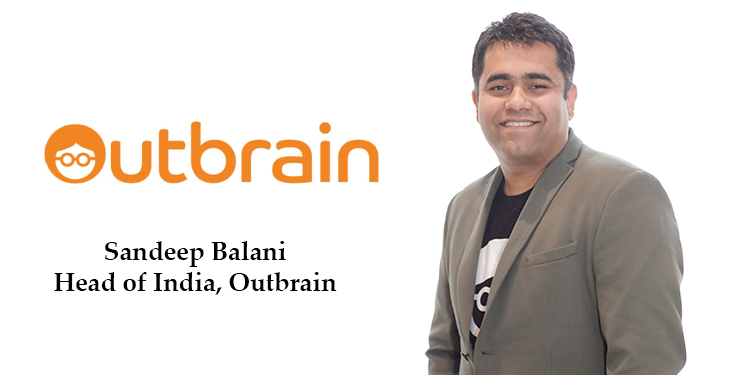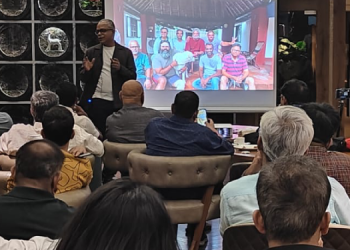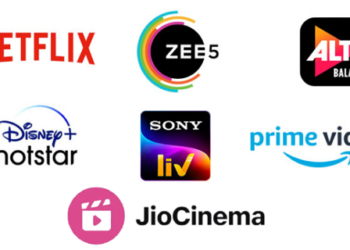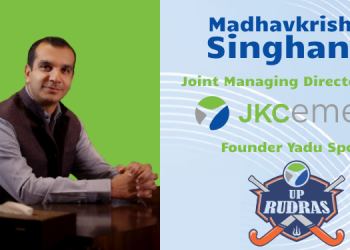So, we all know we’re facing a (very) hard time that affects not only our personal lives but also businesses and companies across the globe. A crisis, in general, can be defined as a situation that suddenly happens and breaks the routine processes of a system due to natural crisis, civil conflicts, epidemics, or organisational/technology failures.
In any case, there is no crisis easy to manage but the good news is that we’ve been through some, at a global, regional or even company level, and we got it! And even knowing that each crisis is different from the other, we can take a look back and define some learnings that can also be used in this moment.
To know how to proceed during a crisis, it’s important to understand its stages. As a process, crisis management can be divided into three phases:
- pre-crisis – focused on prevention and preparation
- crisis response – a moment when you actively respond to a crisis
- post-crisis – follow-up on commitments made during the crisis and rebuilding branding and positioning
In all the phases, marketing has a key role to play in crisis management. As mentioned, a crisis brings a lot of incertitude and questions to everyone, and the starting point to manage this is through providing transparent communication, also known as content marketing using marketing vocabulary. What makes content marketing so relevant, especially in those situations, is its power in providing useful and valuable information, setting expectations and offering an official position to your audience, avoiding misunderstandings and fake news.
As mentioned in Rebecca Lieb’s book “Think Like a Publisher – How to Use Content to Market Online and in Social Media”: “Creating, disseminating, and promoting strong, credible, positive content, is the only weapon at a marketer’s disposal.” A strong content strategy can also be a good ally for other tactics, such as PR, social media, and SEM.
But when thinking about content, we should go beyond the content itself. In a crisis scenario, it’s even more strategic to define where this content will be placed and how it will impact the user.
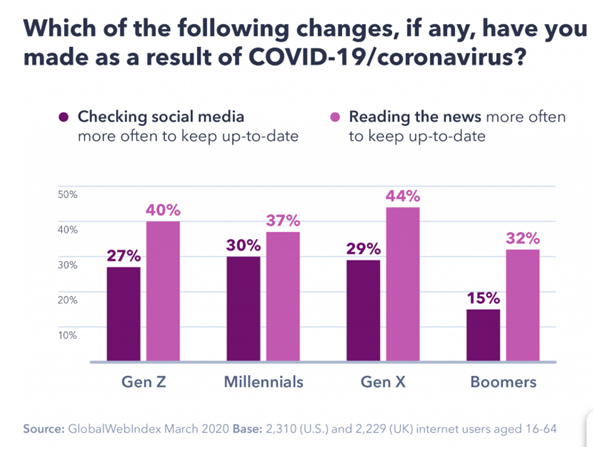
A recent US & UK study found that 74% of people trust the articles on the open webs more than ones from walled garden sources. This is even more so the case during a crisis. Recent data relating to Covid-19 has seen all generations of people turn to trusted news sources vs the social media for relevant and informative information.
Especially during a crisis, consumers spend more time on the open web than on social platforms, having both more browsing sessions per day and longer sessions. Furthermore, in a situation where brand safety matters more than ever, showing content on a site or app that consumers trust is a way to avoid any additional risk and also to gather the consumer’s attention when they are “curious and in a mood to learn more”. In addition, the lack of trust in the content viewed on the walled gardens may help contribute to overall negative feelings about those environments.
Once you have defined content and the environment, it’s equally important to define how this message will be delivered to your audience. During crisis management, it’s key to respect and appeal to audiences in a non-intrusive and respectful approach. This is a time for communicating complex messages and choosing a format that delivers those messages to the right audience is key.
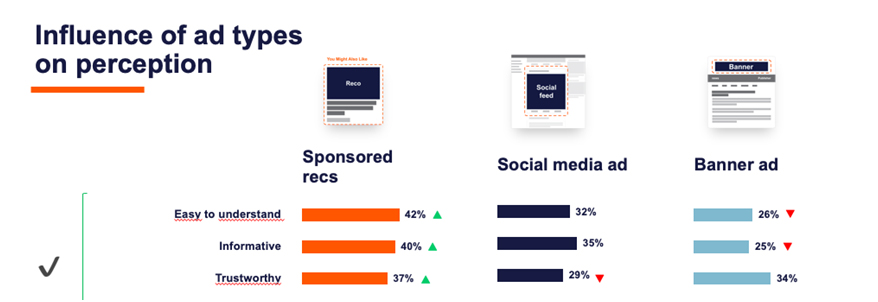
In moments like this, it is good to learn from past experiences. We took a look back at some brands that have gone through their own crisis and delivered best in class communications to their customers.
JBS
JBS is currently the largest protein processor and the second-largest food company in the world. In 2017, Brazil’s Federal Police raised an investigation to confirm that the company had paid federal inspectors to ignore the adulteration or expiration of processed foods.

In order to disprove the news quickly spread by the media, JBS leveraged Outbrain’s native placements on premium publishers to promote its statement talking about their commitment to quality and sanitary standards.
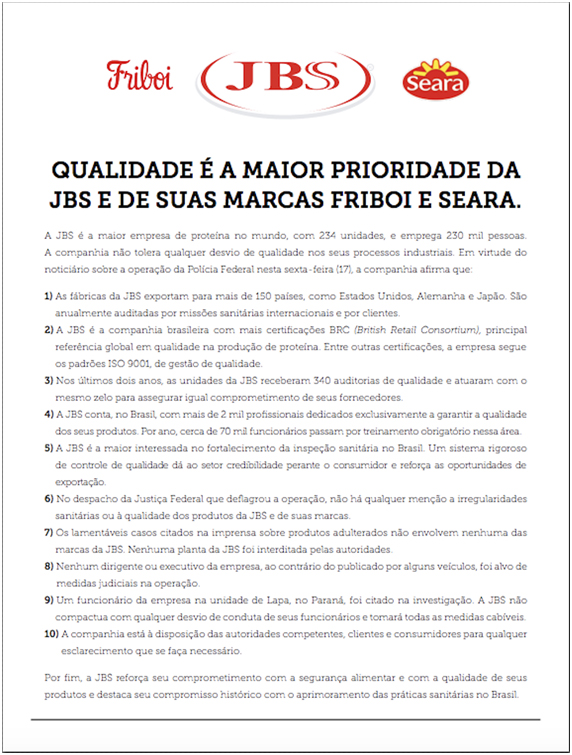
Three
3 (or Three), a Global mobile phone network and broadband internet provider ran a UK campaign to urgently drive sign-ups to support their ‘make the air fair’ petition. The campaign urged Ofcom (government-approved regulatory and competition authority) to impose a 30% cap on the amount of airwaves owned by anyone network. Pippa Whybourne, Lead Marketing Communication Manager described the campaign as “an important one for not only our brand- in short, we needed to get it right in a finite amount of time. The educational nature of the campaign content meant an earned media strategy with Outbrain was a hugely effective channel. Results from the campaign were great, with this activity being our most successful and cost-effective.”
Their campaign objective was to educate consumers about this issue and its impact on a network‘s ability to offer a fast, reliable mobile service at an affordable price. Ultimately to convince consumers to show their support and sign a petition for Ofcom. Outbrain outperformed all other channels being used for this campaign and delivered a CPA significantly lower than their target.
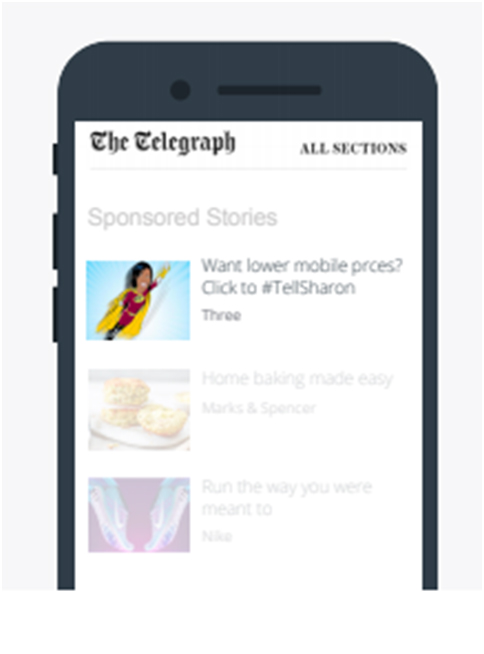
Vale
Vale S.A. is a Brazilian multinational corporation engaged in metals and mining, and one of the largest logistics operators in Brazil. At the beginning of 2019, a mining located in Brumadinho operated by Vale collapsed generating a dam disaster.
With a focus on updating the community about the commitments done during the Brumadinho tragedy, the company used Outbrain’s native placements on premium publishers to direct users to the statement made by their director, Marcelo Klein, on a social platform.
If you need help keeping your customers informed about the steps you are taking as a brand during these difficult times, don’t hesitate to reach out. We can figure out together the best way to go through this crisis.
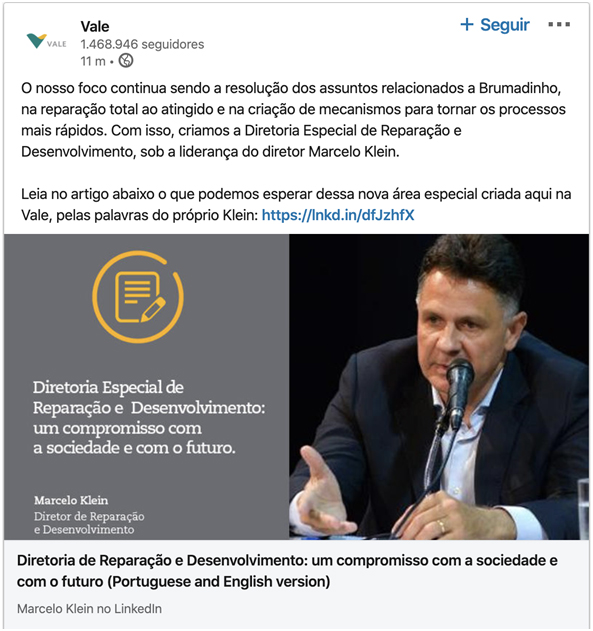
Key Takeaways
- Content Marketing is key to keep your audience informed about the situation, your point of view and next steps.
- Consumers want to be kept informed as quickly as possible, and having your content online is a good option to condense the information in a place where you can drive all your customers through some advertising in different channels.
- A coherent content marketing strategy consists in putting yourself on the consumer shoes. Give comfort, offer solutions and be available to support your customers.
This, combined with opting for quality inventory, is what will help you go through a crisis.
Authored by Sandeep Balani – Head of India at Outbrain

